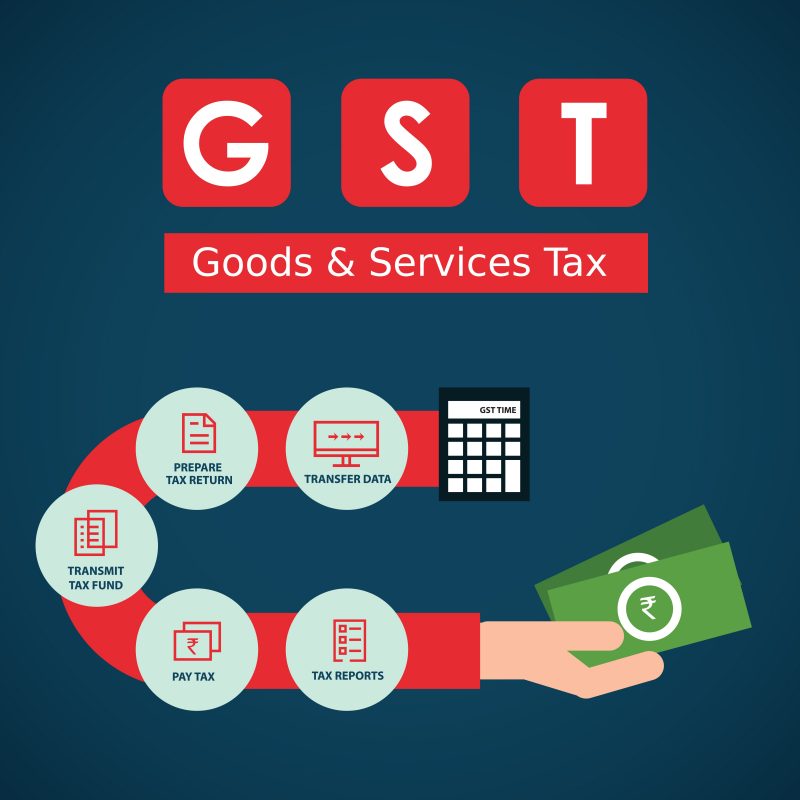The Ministry of Finance has made an essential change to the due date of the GSTR-3B returns on 22 January 2020. It will now be staggered based on the annual turnover in the previous financial year and further the state or Union Territory (UT) in which the taxpayer is registered.
The taxpayers, with an annual turnover of more than or equal to Rs 5 crore, should continue to file by the 20th of the next month to avoid late fees. On the other hand, those with a turnover below Rs 5 crore have two different dates. It depends upon the state or Union Territory in which they are registered.
The first class of taxpayers must file GSTR-3B by 22nd of the next month to avoid late fees. The states or UTs include Chhattisgarh, Madhya Pradesh, Gujarat, Daman and Diu, Dadra and Nagar Haveli, Maharashtra, Karnataka, Goa, Lakshadweep, Kerala, Tamil Nadu, Puducherry, Andaman and Nicobar Islands, Telangana and Andhra Pradesh.
The second class of taxpayers should file by the due date of the 24th of the next month. The states and UTs include Jammu and Kashmir, Ladakh, Himachal Pradesh, Punjab, Chandigarh, Uttarakhand, Haryana, Delhi, Rajasthan, Uttar Pradesh, Bihar, Sikkim, Arunachal Pradesh, Nagaland, Manipur, Mizoram, Tripura, Meghalaya, Assam, West Bengal, Jharkhand and Odisha.
The Central Board of Indirect Taxes and Customs (CBIC) is yet to notify the new due dates. Accordingly, the date or month of its applicability is not definite. Further, the announcement is made when just a few months are left for the new GST returns system to come into being.
Also Read: GST Number Soon to be Mandatory for Gig Economy Workers
While the government plans to bring the new returns in April 2020, these spring up questions about pushing the implementation of new returns to a further date. It is because these dates would not work under the new returns since the filing of the single main returns is divided into monthly and quarterly frequency, and may never clash.
The primary intention of announcing a staggered compliance date for GSTR-3B was to ensure that the GST portal can successfully handle the last day workload. Typically, taxpayers tend to go for the last day filing of their GST returns. It was creating unnecessary processing issues. Recently, the issues comprised of delay in sending the one-time passwords, non-acceptance of the returns submitted, to mention a few. The taxpayers had taken to social media to express their dissatisfaction against the authorities.
GSTN has stated that the number of taxpayers who filed by the due date of December 2019 returns, i.e. 20 January 2020, stands at 65.65 lakh GSTR-3Bs. It is equivalent to the year-to-date average lot filing their GSTR-3B returns by the due date. The GST statistics regularly released by the department points out that an average yearly filing percentage stands at 83.41% for the tax period up to November 2019 (as on 31 December 2019.
Y-o-Y basis, this figure has dropped by about seven per cent on absolute terms compared to the corresponding previous financial year. The year to date up to November 2018 had registered an average filing of 90.50% in FY 2018-19.
Catering to their concerns, the government, after talks with Infosys, the Managed Service Provider decided to segment the taxpayer base into three for fixing the due dates of GSTR-3B. However, the GSTR-1 return date remains unchanged at 11th of every month (Quarterly filers must file by 11th of the month following every quarter).
Further, GSTN in association with Infosys will be coming up with more technological developments to provide seamless filing experience for the taxpayers by April 2020.
For any clarifications/feedback on the topic, please contact the writer at annapoorna.m@cleartax.in
Annapoorna, popularly known as Anna, is an aspiring Chartered Accountant with a flair for GST. She spends most of her day Singing hymns to the tune of jee-es-tee! Well, not most of her day, just now and then.





